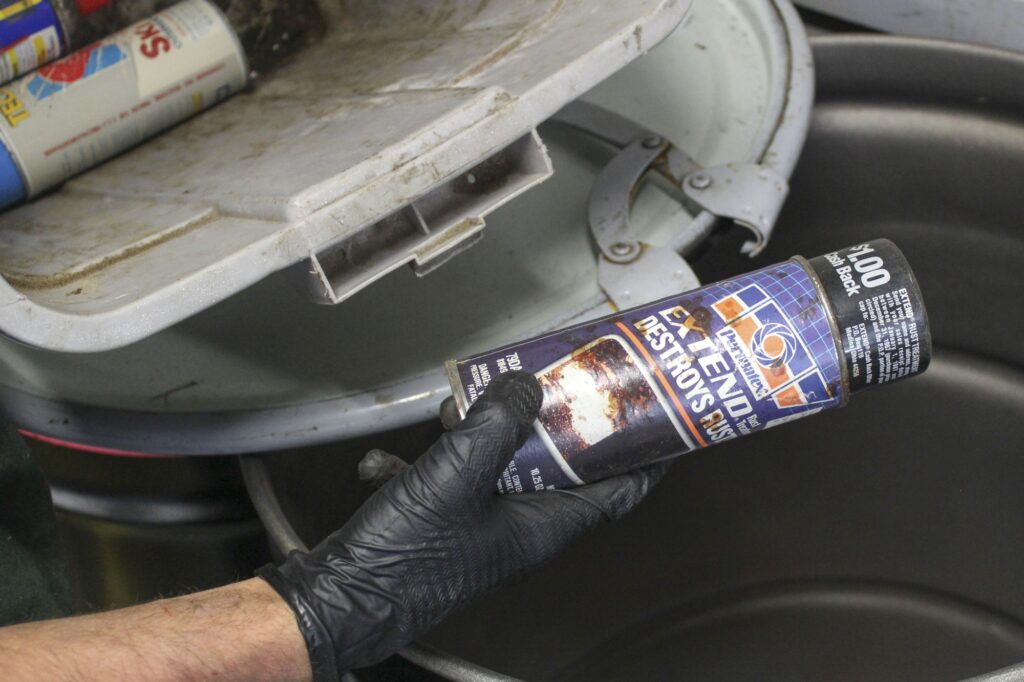Of all the hazardous household products, acids can be some of the most dangerous to homeowners and their families (including pets) and their property. This makes sense: after all, these are commonly found in cleaning products, and what is hard on grease, grime, limescale, and other difficult-to-remove stains isn’t going to be kind to surfaces and skin. Learning how to use, handle, store, and dispose of common types of household acids is vital if you keep them in your home.
Types of Common Acids Found at Home
While very mild acids can be found in beverages and foods, such as citric acid and lactic acids, concentrated and strong acids are typically only found in cleaning products and larger household batteries.
- Muriatic Acid: One of the strongest acids available to residents, muriatic acid is a diluted form of hydrochloric acid used in heavy-duty cleaning.
- Rust Removers & Metal Cleaners: Designed to remove rust, calcium, and other difficult-to-remove deposits, these can contain hydrochloric, phosphoric acid, and sulfuric acids.
- Household Batteries: Smaller batteries can contain alkalines, but larger batteries, especially those found in cars, may contain sulfuric acid.
- Degreasers: These include dishwashing soaps, detergents, and stronger degreases for grills or ovens.
- Hard Water Treatments: These are used in shampoos or additives to water systems, and they use mild citric or lactic acids.
What Makes Household Acids Hazardous?
An acid is a chemical with a low pH (a scale of 1 to 10). Strong acids, such as those listed above, are corrosive by nature. In many products, such as strong cleaning products, this is seen as a positive, but these same qualities make acid dangerous to both handle and store, as it can eat through containers and surfaces and damage skin, soft tissues, and lungs when improperly used.
It’s important to note that strong alkalines (those with a high pH) can be as equally corrosive and toxic, such as oven cleaners and soot removers. Some products, like drain cleaners, can contain either strong acid or alkaline.
Disposing of Household Acids
Start by always reading the labels before use (and ideally before buying) any of the above products. They will give you a list of proper equipment to use, such as hand, eye, and breathing protection—including if you need to use a mask or in a well-ventilated space. Make sure to store them in the containers they came in (if those containers are no longer suitable, contact the manufacturer for instructions). When it comes to disposal, many types of acid cannot be disposed of at home or in the garbage since they pose a hazard to materials and personnel and can damage pipes if poured down the drain.
Thankfully, disposal options are available to you, including NEDT Collection Centers! We accept many kinds of cleaning chemicals; see our full listing here. Make more of your trip to one of our locations by bringing in any other household hazardous waste (such as old eWaste like CRT monitors) when you drop off, or learn more about our pick-up options. Because household hazardous waste shouldn’t be difficult!




Leave a Reply